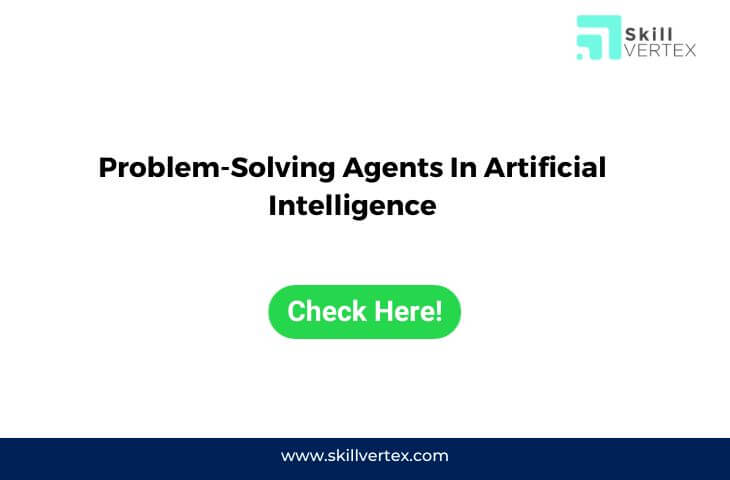In artificial intelligence, a problem-solving agent refers to a type of intelligent agent designed to address and solve complex problems or tasks in its environment. These agents are a fundamental concept in AI and are used in various applications, from game-playing algorithms to robotics and decision-making systems. Here are some key characteristics and components of a problem-solving agent:
- Perception: Problem-solving agents typically have the ability to perceive or sense their environment. They can gather information about the current state of the world, often through sensors, cameras, or other data sources.
- Knowledge Base: These agents often possess some form of knowledge or representation of the problem domain. This knowledge can be encoded in various ways, such as rules, facts, or models, depending on the specific problem.
- Reasoning: Problem-solving agents employ reasoning mechanisms to make decisions and select actions based on their perception and knowledge. This involves processing information, making inferences, and selecting the best course of action.
- Planning: For many complex problems, problem-solving agents engage in planning. They consider different sequences of actions to achieve their goals and decide on the most suitable action plan.
- Actuation: After determining the best course of action, problem-solving agents take actions to interact with their environment. This can involve physical actions in the case of robotics or making decisions in more abstract problem-solving domains.
- Feedback: Problem-solving agents often receive feedback from their environment, which they use to adjust their actions and refine their problem-solving strategies. This feedback loop helps them adapt to changing conditions and improve their performance.
- Learning: Some problem-solving agents incorporate machine learning techniques to improve their performance over time. They can learn from experience, adapt their strategies, and become more efficient at solving similar problems in the future.
Problem-solving agents can vary greatly in complexity, from simple algorithms that solve straightforward puzzles to highly sophisticated AI systems that tackle complex, real-world problems. The design and implementation of problem-solving agents depend on the specific problem domain and the goals of the AI application.
Hello, I’m Hridhya Manoj. I’m passionate about technology and its ever-evolving landscape. With a deep love for writing and a curious mind, I enjoy translating complex concepts into understandable, engaging content. Let’s explore the world of tech together

